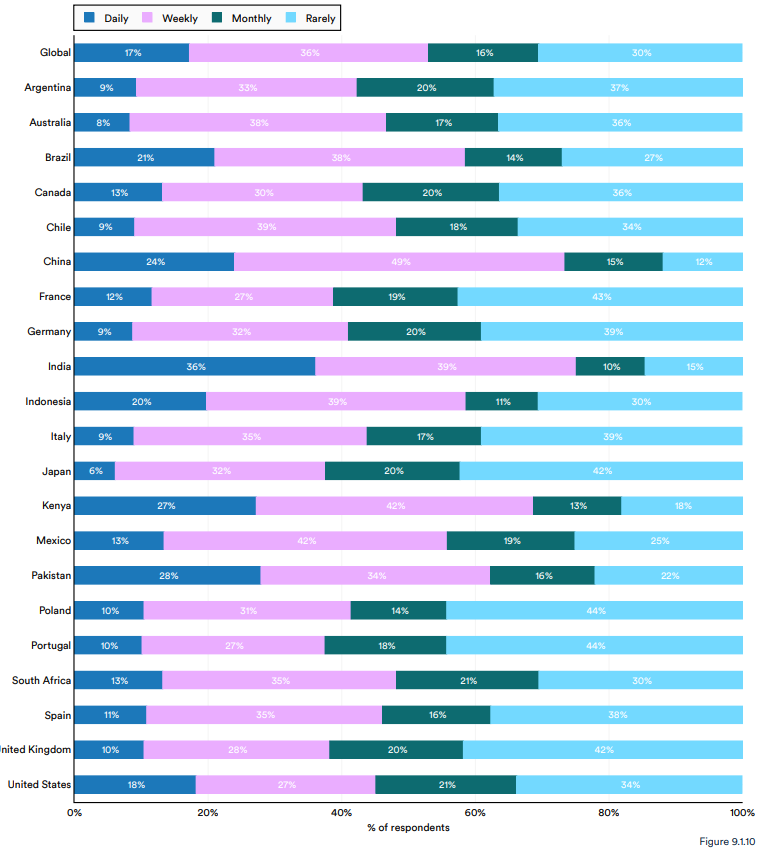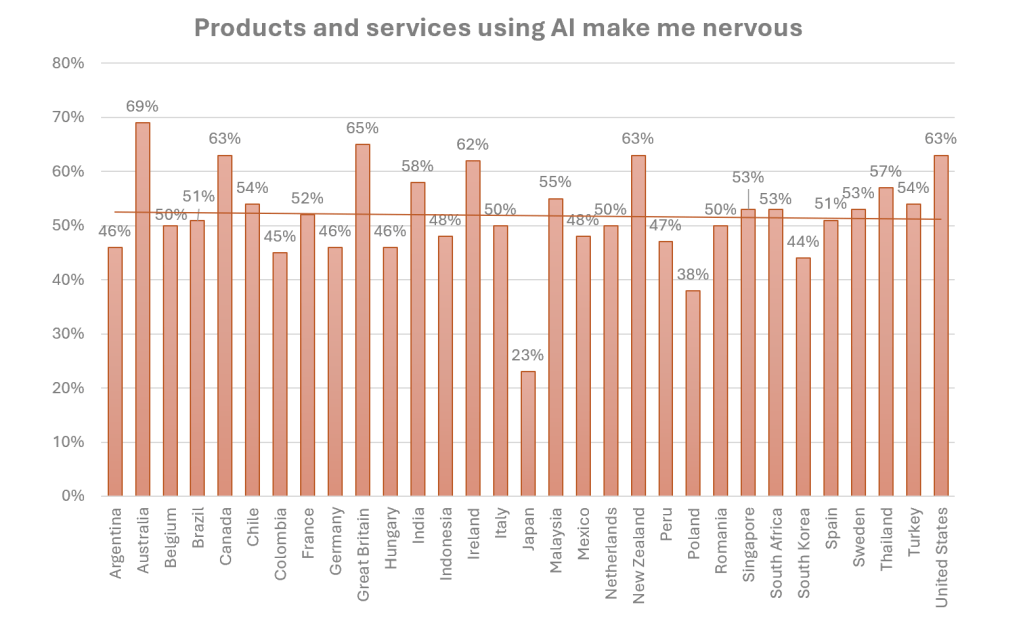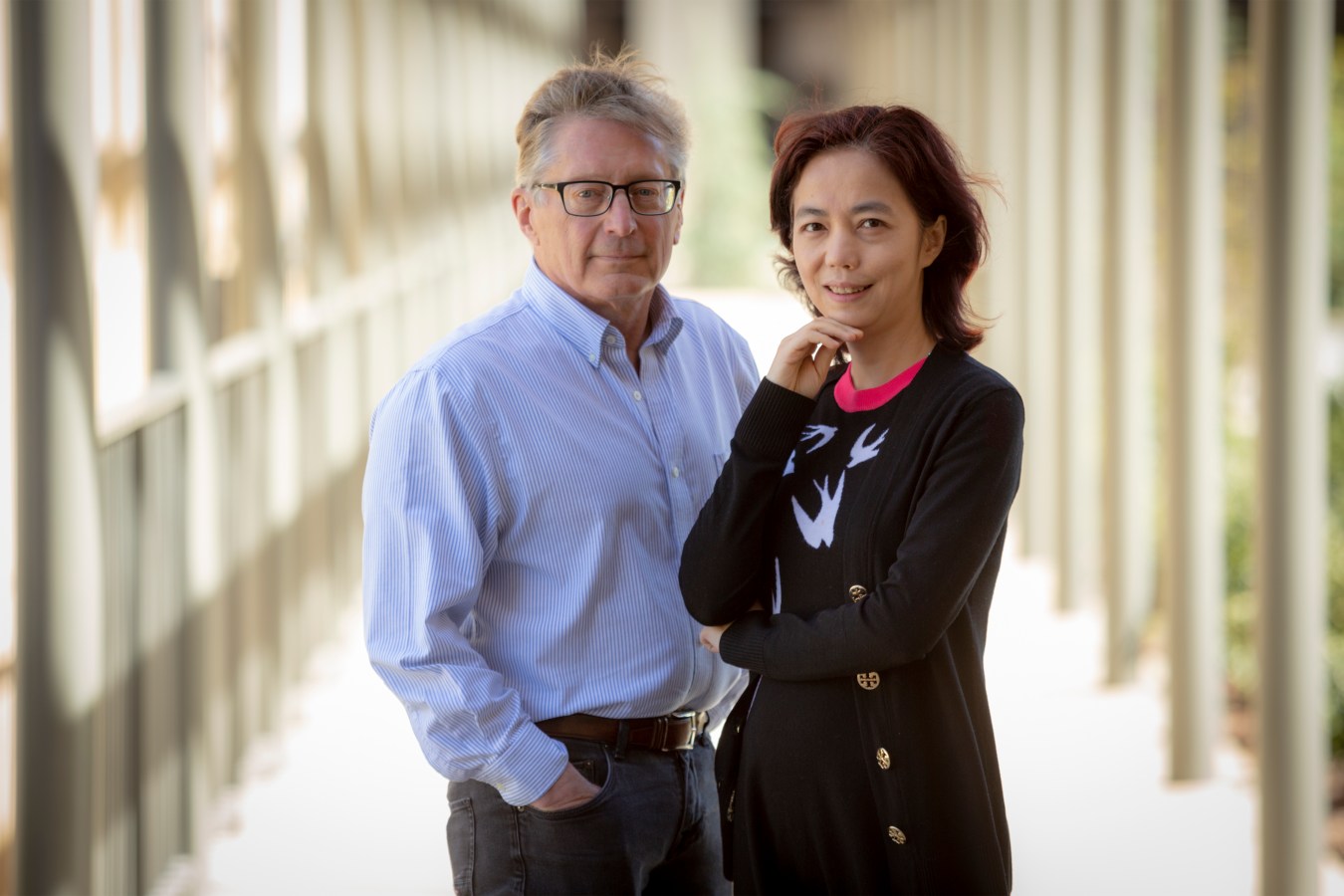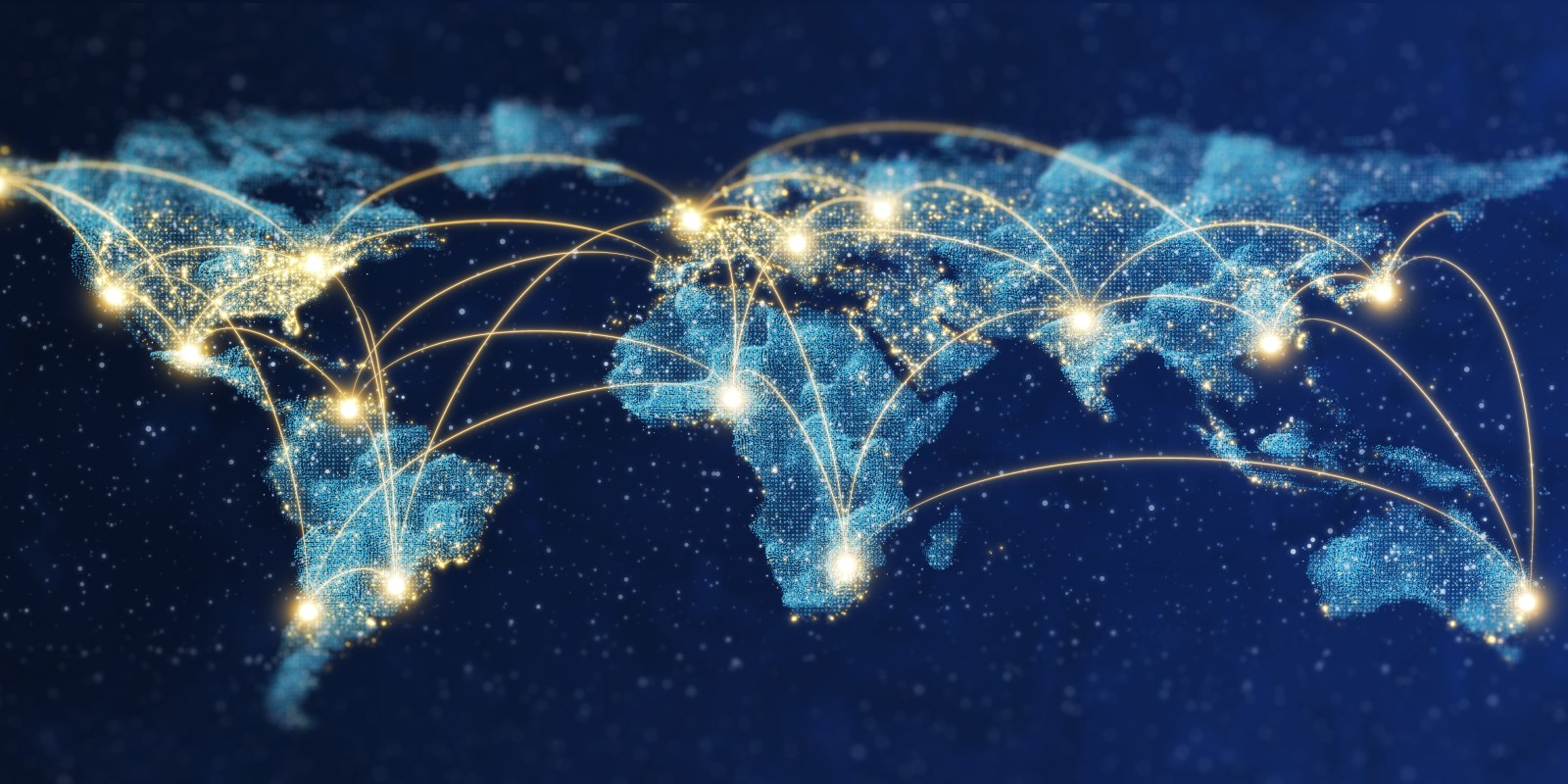17% of people around the world use ChatGPT daily, according to University of Toronto research. Australians are using the service much less. Other research released this week reveals that 78% of Australians distrust news written by generative AI, and 95% believe it needs to be disclosed by news media.

Do Aussies distrust AI more than citizens from other countries? A growing body of research suggests yes.
69% of Australians say AI products and services make them nervous, according to 2023 IPSOS data.
New data from the University of Toronto’s ‘Global Public Opinion on Artificial Intelligence’ (GPO) survey discloses that 60% of Australians are aware of ChatGPT, slightly below the global average of 63%. Yet only 8% of Aussies use it daily, compared to 17% of people across the globe. The only other country that has a lower daily usage than Australia, is Japan.
The University of Toronto will release the complete set of data in May. In the interim, results from the GPO study have been provided to Stanford’s HAI for inclusion in the 2024 AI Index.
Global usage frequency of ChatGPT (% of total), 2023

In other research released this week, the Australian federal government reveals that 78% of citizens distrust news written entirely by generative AI. A whopping 95% of Aussies believe the use of generative AI should be disclosed by news sites.
“The 2023 Television and Media Survey offers valuable insights into how Australians of all ages are consuming media, and what concerns they want to see addressed,” says Michelle Rowland, the minister for communications.
“Importantly, the survey also sheds light on Australian attitudes and expectations surrounding the use of generative AI to produce news content.”
It comes on the heels of a trove of data being released explaining how constituents feel about AI.
Australian sentiment towards AI
A 2023 global Ipsos report stated that Australia takes the top spot in the ‘AI Nervousness rankings,’ closely followed by the UK, Brazil, and New Zealand. The United States – where much of the research and development of AI models is taking place – closes out the top 5.
On the other end of the spectrum, citizens from Japan, Poland, and South Korea are the least nervous about AI, according to 2023 Ipsos data.

So why are Australians more nervous about this emerging technology than constituents from other nations? We dug into the data to get some answers.
Respondents from Australia are less inclined to say that they have a good understanding of what AI is, compared to other nations. The majority (62%) of Aussies disclosed that they believe that products and services using AI will profoundly change their daily life within the next 3-5 years. 40% of those surveyed believe that AI has already changed their lives.
Less than half of Australian respondents trust that AI will not discriminate or show bias toward any group of people. Even less believe that products and services using AI have more benefits than drawbacks.
Only 40% of Australians surveyed expressed excitement about products and services using AI, and 42% said they trust companies using AI as much as those that aren’t. 38% said they know which products and services use artificial intelligence, and that they trust companies that use artificial intelligence will protect their personal data.
The most staggering statistic, however, and the one in which we top every other country, is the degree to which products and services using AI make us nervous. Ipsos statistics reveal that at least two out of three Australians have AI-related nervousness.
And it’s not getting better with time. There has been an 18% increase in the number of Australians that say they are nervous about AI over the last year. 12% more people now say that AI products and services will change their daily life, than they did a year ago. A dismal 20% of Aussies believe that AI will have a positive impact on the job market, compared to the global average of 32%.

Australia indexes significantly higher than most nations when it comes to the lack of transparency in decision-making, ethical implications, accuracy of results and analysis, and potential for bias and discrimination. Interestingly, given those concerns, Australians are less concerned that AI will be used or misused for nefarious purposes than citizens from other nations are.
To summarise, the data suggests that Australians feel things are shifting and changing, but don’t understand the intricacies of the technology. Aussies are not using ChatGPT as much as other people from other nations are. We are becoming increasingly wary of AI. And all of that is making us very nervous.
Look back on the week that was with hand-picked articles from Australia and around the world. Sign up to the Forbes Australia newsletter here or become a member here.


